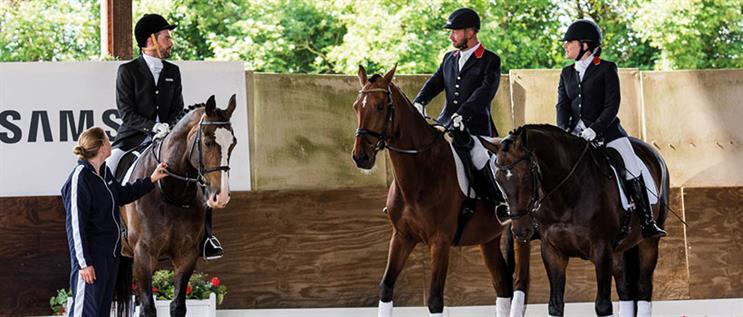Samsung’s move to a more emotionally driven marketing strategy is one of the key reasons why the brand was crowned Creative Marketer of the Year in Cannes last month.
Over the past few years, Samsung has shifted its marketing approach to a more "consumer-centric strategy", which focuses on how its products and technologies can create meaning in the lives of consumers, according to a Cannes Lions statement that announced the technology company’s win.
Samsung UK chief marketing officer Russell Taylor explains that this shift occurred because the team realised that talking about product benefits and attributes will only get you so far. "It creates a rational and considered relationship. What we are looking to do is create something deeper than that too: an emotional connection," he says.
When this is done successfully, "customers want to purchase products not based on their price but because there is an ongoing relationship with the brand. That is the holy grail and to get there requires real creativity. That is our challenge."
And it’s a challenge that the brand has accepted for its Rio 2016 activity. The long-time sponsor of the Olympic Games (for more than 26 years) and a sponsor of Team GB released its UK "School of Rio" campaign this week.
Although the films push the Samsung Galaxy S7 and S7 Edge smartphones, they do not focus just on product attributes. Instead, the company has reprised a campaign idea it ran for the Rugby World Cup, in which comedian Jack Whitehall is tutored in different sports by famous stars. The new campaign features Sir Bradley Wiggins, Sir Steve Redgrave and Ellie Simmonds.
The work was created by BBH Sport. The five ads were directed by Gabe Turner and produced by Ratting Stick. Samsung will also be filming live virtual-reality interviews with Team GB athletes during the tournament.
Below, Taylor discusses how Samsung is trying to create an emotional connection with its customers in its 2016 Olympics and Paralympics campaign.
Russell Taylor on how Samsung will use the Olympic Games
As an official global Olympic and Paralympic partner, we have huge assets to capitalise on and an opportunity to create a campaign that will help our mission to build love for the brand. In this highly saturated and competitive arena, our marketing must be creative in order to cut through and make an impact.
"School of Rio", which launched this week, is based on two key pieces of consumer insight. First, in this country people really get behind Team GB during the Games – but there are plenty of sports that the man on the street only watches once every four years. People want to know more but – and this is the second insight – they don’t want to be lectured or patronised about it.

The tone we used in the "School of rugby" campaign last year worked exceptionally well and we are even more excited about the content we have for "School of Rio".
Jack Whitehall is a fantastic leading man and we are proud to have some of the greatest Olympic and Paralympic athletes in the world working with us as part of the campaign. We are proud of the results and think we have created a narrative that is genuinely funny and engaging.
There is complicity between consumers and brands. Today’s consumers are smart and savvy, and they will put up with a brand’s involvement in a piece of content if there is a reward for them. In this case, the reward comes in the form of entertainment – "Move me and I will share and engage with your campaign". We believe "School of Rio" provides that type of consumer reward.
We have created a campaign that hopefully will have a halo effect for our products. But we have also picked out product attributes of the Galaxy S7 that are an intrinsic part of the campaign. We also need to boost product sales – consider that the table stakes. If we don’t do that, then we haven’t succeeded.
Looking beyond that, there is a buzz about creating work that creates a reaction and most marketers will admit to that. There is a feeling of pride when people comment on your work. So, ultimately, our ambition is to create and deliver work that people will talk about for years to come; a campaign that becomes ingrained in people’s long-term memory.
Not many campaigns ever reach those heights but that is certainly our ambition – and our real creative challenge.



